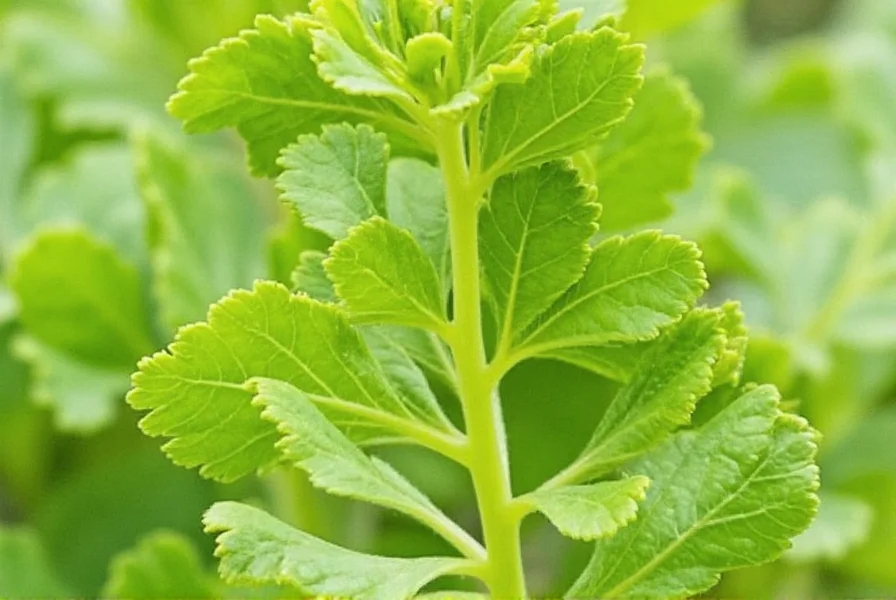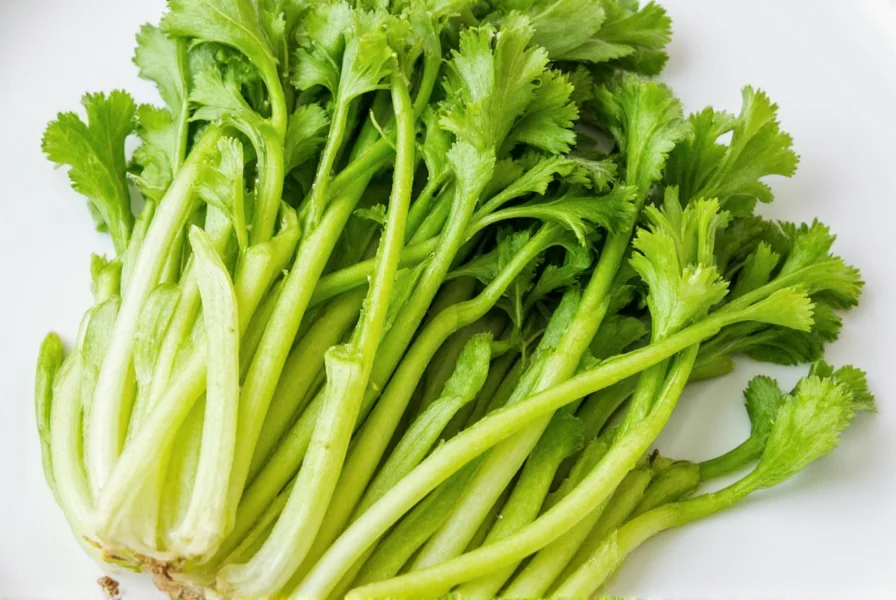Celery seed, derived from the Apium graveolens plant, has been valued in traditional medicine systems for centuries. While modern science continues to investigate its properties, current evidence points to several potential health applications that extend beyond its common role as a culinary spice. This comprehensive overview examines what celery seed is good for based on both historical usage and contemporary research.
Understanding Celery Seed's Active Components
Unlike the more familiar celery stalks, celery seeds contain concentrated levels of bioactive compounds. The most studied component is 3-n-butylphthalide (3nB), which appears responsible for many of celery seed's potential health benefits. Other important constituents include:
| Compound | Natural Concentration | Primary Functions |
|---|---|---|
| 3-n-butylphthalide (3nB) | High in seeds, low in stalks | Blood pressure regulation, neuroprotection |
| Limonene | Moderate | Digestive support, antioxidant |
| Sedanenolide | Moderate | Anti-inflammatory properties |
| Apiol | Low | Traditional digestive aid |
Science-Backed Health Applications of Celery Seed
Blood Pressure Management
One of the most researched benefits of celery seed relates to cardiovascular health. A 2021 review published in Phytotherapy Research analyzed multiple studies on celery seed extract's effects on blood pressure. The analysis suggested that 3nB may help relax blood vessels and reduce oxidative stress, potentially supporting healthy blood pressure levels within normal ranges. Clinical trials have typically used standardized extracts providing 75-150mg of 3nB daily for this purpose.

Natural Anti-Inflammatory Properties
Research indicates celery seed contains compounds that may inhibit inflammatory pathways in the body. A laboratory study in the Journal of Agricultural and Food Chemistry demonstrated that celery seed extract reduced markers of inflammation in cell cultures. While human studies are limited, traditional herbal medicine systems have long used celery seed to support joint comfort and mobility. The anti-inflammatory properties of celery seed for arthritis management continue to be an active area of research.
Antioxidant Capacity
Celery seed demonstrates significant antioxidant activity according to research published in Oxidative Medicine and Cellular Longevity. The seed's polyphenol content helps neutralize free radicals that can damage cells. This antioxidant effect may contribute to overall cellular health and potentially support the body's natural defense systems against oxidative stress.
Digestive Health Support
Traditional European and Ayurvedic medicine systems have used celery seed to support healthy digestion. Modern research suggests certain compounds in celery seed may help stimulate digestive enzyme production and support healthy gut motility. The natural fiber content in whole celery seeds also contributes to digestive health when consumed as part of a balanced diet.
Practical Applications and Usage Guidelines
Forms of Celery Seed Available
Celery seed comes in several forms, each with different applications:
- Whole seeds - Best for culinary use in breads, soups, and pickling
- Ground powder - Convenient for cooking and spice blends
- Standardized extracts - Typically used for medicinal purposes with consistent 3nB content
- Essential oil - Highly concentrated; requires dilution and professional guidance
Dosage Considerations for Celery Seed Benefits
When considering celery seed for specific health purposes, appropriate dosing matters. Research studies have used various amounts:
- Culinary use: 1/4 to 1 teaspoon of seeds daily
- General wellness: 250-500mg of standardized extract daily
- Blood pressure support: 75-150mg of 3nB (typically requiring 500-1000mg of standardized extract)
Always start with lower amounts to assess tolerance, and never exceed recommended dosages without professional guidance.

Safety Profile and Important Precautions
While celery seed offers potential health benefits of celery seed extract, it's essential to understand safety considerations:
Potential Side Effects
Most people tolerate culinary amounts of celery seed well. However, higher medicinal doses may cause:
- Photosensitivity (increased sunburn risk)
- Digestive upset in sensitive individuals
- Uterine stimulation (concern for pregnancy)
Important Drug Interactions
Celery seed may interact with certain medications:
- Diuretics - May enhance effects, potentially causing electrolyte imbalance
- Antihypertensive drugs - Could amplify blood pressure lowering effects
- Lithium - May affect excretion rates
- Blood thinners - Theoretical interaction requiring monitoring
Contraindications
Celery seed should be avoided or used only under medical supervision if you:
- Are pregnant or breastfeeding
- Have kidney disease
- Have known celery allergy
- Are scheduled for surgery within two weeks
Integrating Celery Seed into Your Wellness Routine
For those interested in exploring the natural anti-inflammatory properties of celery seed, consider these practical approaches:
- Add whole seeds to bread dough or vegetable stocks for subtle flavor and potential benefits
- Create a digestive tea by steeping 1 teaspoon of seeds in hot water for 10 minutes
- Combine ground celery seed with other spices like turmeric in golden milk recipes
- Consider standardized extracts only after consulting with a healthcare provider familiar with herbal medicine
Remember that celery seed works best as part of a comprehensive approach to health that includes balanced nutrition, regular physical activity, and appropriate medical care. The scientific research on celery seed benefits continues to evolve, with promising but not yet conclusive evidence for many applications.
Frequently Asked Questions
Can celery seed lower blood pressure effectively?
Some clinical studies suggest celery seed extract may support healthy blood pressure levels within normal ranges, primarily through its 3-n-butylphthalide (3nB) content. However, it should never replace prescribed blood pressure medication. Research indicates potential modest effects, but individual responses vary significantly. Always consult your healthcare provider before using celery seed for blood pressure support, especially if you're already taking medication.
What's the difference between celery seed and celery seed extract?
Whole celery seeds contain all natural compounds in their original ratios, typically used in cooking. Celery seed extract is a concentrated form that standardizes specific compounds like 3nB. Extracts provide more consistent dosing for medicinal purposes but lack the full spectrum of compounds found in whole seeds. For general wellness, culinary use of seeds may suffice, while extracts are typically used when targeting specific health benefits of celery seed extract.
How long does it take to notice benefits from celery seed?
The timeframe for experiencing potential benefits varies by application. For digestive support, effects might be noticed within hours of consumption. For blood pressure or anti-inflammatory benefits, research suggests it may take 4-8 weeks of consistent use to observe potential effects. Individual responses differ based on metabolism, health status, and dosage. Scientific research on celery seed benefits indicates that consistent, long-term use typically yields better results than occasional consumption.
Can I use celery seed if I'm allergic to celery?
No, if you have a known celery allergy, you should avoid celery seed completely. The allergens present in celery stalks and leaves are also found in higher concentrations in the seeds. Celery seed allergy can trigger reactions ranging from mild oral allergy syndrome to severe anaphylaxis. Those with birch pollen allergies may also experience cross-reactivity with celery seed due to similar protein structures.
Does celery seed interact with common medications?
Yes, celery seed may interact with several medications. It can enhance the effects of diuretics and blood pressure medications, potentially causing levels to drop too low. There's also a theoretical interaction with lithium and blood thinners. The natural diuretic properties of celery seed require special consideration if you're taking prescription diuretics. Always consult your healthcare provider or pharmacist before combining celery seed with medications, particularly if you're managing chronic health conditions.











 浙公网安备
33010002000092号
浙公网安备
33010002000092号 浙B2-20120091-4
浙B2-20120091-4